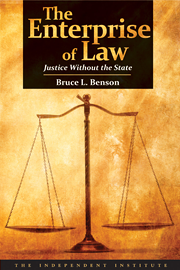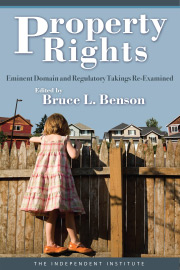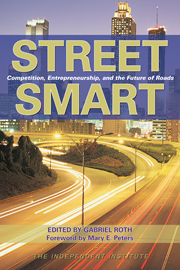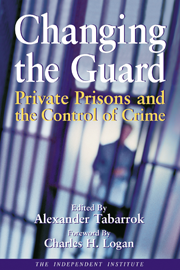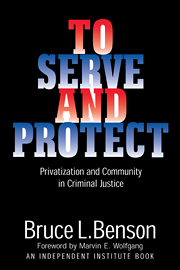City governments nationwide are bleeding red ink, largely due to the salaries and benefits their unionized employees are paid. With high unemployment, falling property values and sinking tax revenues, these salaries and benefits can’t be sustained.
Decisions to lay off or furlough employees, reduce benefits or curtail promised pay raises typically produce highly publicized threats to cut services. Cities and their citizens should consider responding to such threats by laying off even more employees.
Most public employees don’t do anything that can’t be done at lower cost by employees of private firms, from filling out incident-report forms to protecting the public.
Consider the case of Anthony Batts, the police chief of Oakland, Calif. He has announced that his department will no longer respond to citizen calls on 44 criminal and noncriminal matters typically handled by the police, including grand theft, burglary, embezzlement and auto accidents. This was Chief Batts’ response to Oakland’s decision to lay off 80 police officers.
The city is trying to deal with an approximate $30 million budget deficit. As in most cities, expenditures for police account for a significant portion of Oakland’s budget. With a 776-person force, it spends about $250,000 per officer per year, including salary and benefits.
Salaries alone average $95,000. The benefits include an extraordinarily generous pension plan, which can exceed 100% of final pay for career officers.
Unlike many other public employees, Oakland police officers don’t contribute to their pensions; taxpayers bear the full cost.
When the city asked the police to contribute 9% of their salaries to their pensions, similar to the San Francisco and Los Angeles police, their union said no—unless the city guaranteed no layoffs for three years. The current mess ensued.
In Oakland’s case, the City Council belatedly recognized this and has voted to hire a private security firm, International Services Inc., to patrol high-crime areas. Four private patrolmen will cost the city about $200,000 a year—a fifth of what four city police officers would cost. It’s a small, but important step forward.
An Oakland police spokesman said the department wouldn’t object to hiring unarmed guards, but that “armed guards . . . lack adequate training (and) background checks.”
Even if this was correct, and it’s not, many of the activities the police chief has threatened to forgo could be done by unarmed employees of private firms: things like responding to reports of burglary, theft, embezzlement, identity theft, auto accidents, loud music, stolen license plates, forged checks, vandalism, unauthorized cable TV connections and so on.
The argument that private security officers are untrained is spurious. What it fails to recognize is that the private sector provides a large variety of security services geared to customers’ needs. Many employees are fully trained as police officers. Some are former military police; some are retired civilian police; others are current officers who are moonlighting. Still others have specialized skills that exceed anything a city police officer needs.
Some are mall cops, while others protect sensitive government facilities, such as the 1,600-square-mile nuclear test site in Nevada and the NASA Kennedy Space Center in Florida, or guard large tourist meccas, such as Caesars Palace and Disney World.
Unlike public police departments who put all officers through the same standard training program, the private sector doesn’t require more training than is needed. A private security employee who monitors television screens doesn’t have to be a marksman. Someone giving out parking tickets doesn’t require firearms.
Those who are concerned about abuse or ineptitude by armed private security officers should do as I did: search online for news stories reporting abuse by local police officers and by private security guards.
In the case of the private security officers the number will be close to zero; in the case of the local police the number will be disturbingly large.
Yet there are at least three times as many private security personnel in the United States than police officers.


